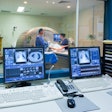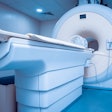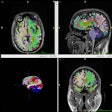Canadian researchers have found evidence of "substantial overuse" of lumbar spine MRI scans: More than half of requests for images were considered inappropriate (29%) or of uncertain value (27%) in a study published online March 25 in JAMA Internal Medicine.
The study also showed that family physicians were more likely to order inappropriate lumbar spine MR imaging than other specialties.
"The high rate of inappropriate and uncertain MRI ordering for the lumbar spine is not surprising," the authors wrote. "Lumbar spine MRI numbers have increased dramatically in recent years, but the correlation between lumbar spine MRI findings and clinical signs and symptoms is poor."
On a more positive note, 83% of requests for head MRI scans for headache were appropriate.
Lead author Dr. Derek Emery, from the University of Alberta's department of radiology and diagnostic imaging, and colleagues used the appropriateness method developed by RAND and the University of California, Los Angeles to define appropriate care.
The retrospective study reviewed outpatient requests for MRI scans at the University of Alberta Hospital from May 2008 to September 2009 and at Ottawa Hospital from September 2008 to March 2010. Data were collected from 500 lumbar spine requests and 500 head MRI requisitions for headache from each site.
Only 443 of the 1,000 lumbar spine MRI requests were considered appropriate, with the remaining exams divided between inappropriate (285 of 1,000, 28.5%) and being of uncertain value (272 of 1,000, 27.2%), according to Emery and colleagues.
An MRI scan for postoperative leg or back pain was the only indication with an almost certain rating of appropriate use (160 of 167, 95.8%); however, the indication accounted for only 16.7% of all MRI orders for the lower back. For the other indications, accounting for 83.3% of tests, the probability of an uncertain or inappropriate rating was three times greater than the probability of an appropriate rating.
Family physicians had a lower rate of appropriate MRI requests for the lower back compared to other specialties, the authors wrote. Only 33.9% of their MRI scans were considered appropriate, compared with 58.1% of those requests from other specialties.
Among the subspecialties, MRI exams ordered by neurologists and orthopedic surgeons were appropriate in less than half of cases, while scans requested by neurosurgeons were appropriate in 75.7% of cases.
Physicians fared much better in requests for MRI for headaches; requests were appropriate 82.8% of the time. Of the remainder, 9% were for an inappropriate indication and 8.2% were of uncertain value. All physician specialties had similar rates of inappropriate ordering for MRI for headaches.
"Eliminating inappropriate scans and some of uncertain value could reduce the harm that accrues from unneeded investigations and result in significant cost savings," Emery and colleagues concluded.

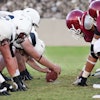
.fFmgij6Hin.png?auto=compress%2Cformat&fit=crop&h=100&q=70&w=100)


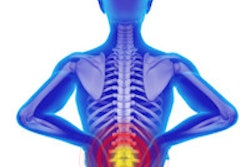

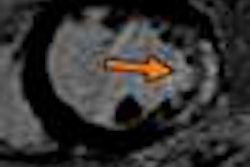
.fFmgij6Hin.png?auto=compress%2Cformat&fit=crop&h=167&q=70&w=250)








